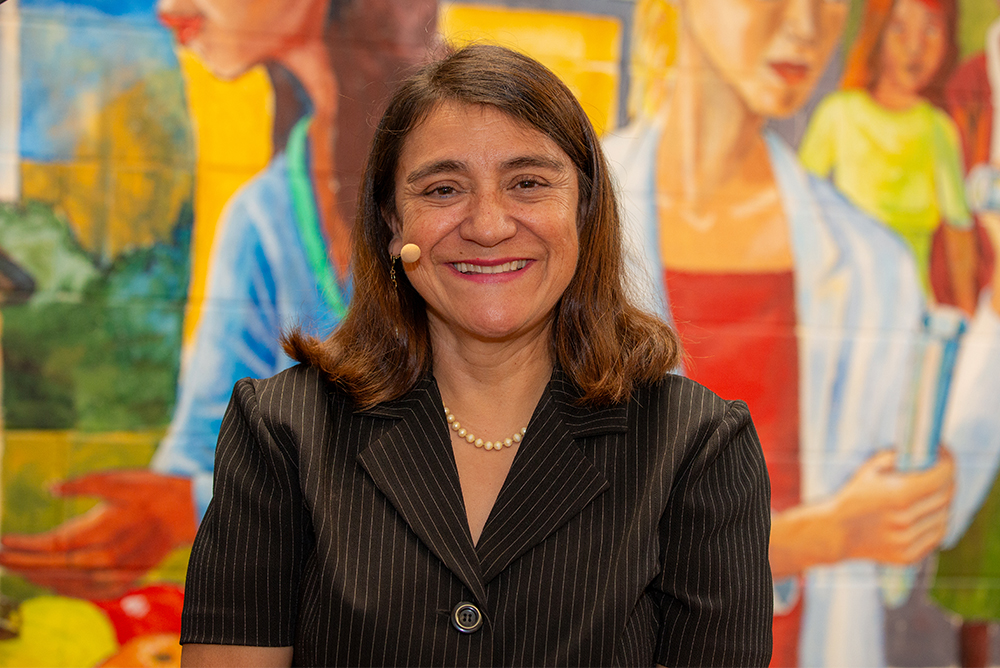
Photo by Lar Yang | Yang Design.
Helda Pinzón-Perez is a public health professor at California State University, Fresno. Her areas of research include health issues of vulnerable populations and in rural areas. Before joining the panel for the Zócalo event “What Is a Good Job Now? In Health Care?”—presented in partnership with The James Irvine Foundation—she chatted with us in the green room about nursing, selling shoes in Bogotá, and the underrated virtues of failure.
If you’re leaving Fresno on a day trip, where would you go?
Yosemite.
What’s your favorite Fresno taco?
I really like the homemade tacos. I especially like those that a friend of mine makes. She makes them at her house, and she has a taco truck.
Zócalo is turning 20! What is some advice you wish you’d received in your 20s?
Learn to fail. Take failing as a learning experience, rather than as a defeat. Learn to grow out of failure. And learn to be thankful when you have success.
What was your most memorable birthday and why?
My 15-year-old birthday. I had a quinceañera. It’s a major event in the Hispanic/Latinx/Latine culture, in which the family and friends gather. Everyone was there.
How did you first get into public health?
I am a nurse, and in nursing we receive several classes, and my favorite ones were related to public health. Through the practice I did in communities, I found that public health is essential in disease prevention and health promotion.
What question do your students most often ask?
The question: “Why do I like health education?”
They ask that because they think it’s boring? How do you answer the question?
I say that it is important. It’s an effective way to maximize wellness.
Much of your work in public health and health education is in rural communities. What’s the biggest misconception that people have about such communities?
One misconception is that they lack education. There may not be as much formal education and academic education. But I would say that rural communities have in many ways more education than we have in the city—education that comes from life experiences, education that comes from the hardship that they have to face.
What was your first job?
I’m from Colombia. My first job was in a shoe store, as a salesperson in Bogotá. I learned a lot about customer service. I learned a lot about patience.
What do you like to do to rest and recharge?
I like to listen to Andean music—it’s beautiful. And there is silence in that music. I like silence—and it’s always noisy, because I have a family. And I like to pray.
What was the last book you read?
An academic textbook. I like to read academic textbooks—that’s my world, that’s my life. I enjoy reading textbooks related to health promotion. When it’s not work, you’ll find me reading spiritual books—one dimension of wellness is spiritual wellness.



